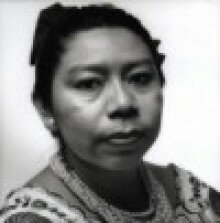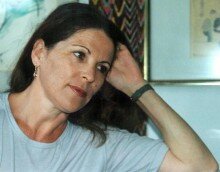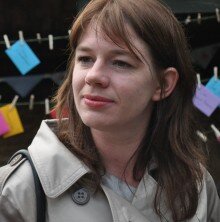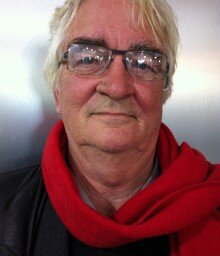
Briceida Cuevas Cob is a Maya poet born in Tepakan, Calkiní, in the province of Campeche on the Yucatán Peninsula. She has published in several literary magazines and newspapers in Quitana Roo, Campeche, Yucatán and Mexico City.
Her poetry has appeared in two anthologies. The first, Flor y Canto (flower and song), containing work of five indigenous poets from the south, was published by the INI and Unesco in the state of Tabasco in 1993. The second anthology, wich appeared in Spain in 1994, is entitled Tumbén Ik ´t´anil ich Maya´ T´an, meaning ‘modern poetry in the Maya language’
In 1995 she published her collection U yok´ol auat pek´ ti´ u kuxtal pek (the lament of the dog in its existence) with Casa Internacional del Escritor in Quintana Roo. In 1996 she received a scholarship from the Fondo Nacional para la Cultura y las Artes para Escritores en Lenguas Indígenas (National fund for the culture and the arts for writers in indigenous languages). In that year, Cuevas Cob wrote a book on the daily life of the Maya woman. She is a founding member of the Asociación de Escritores en Lenguas Indígenas (Association of writers in indigenous languages) in Mexico. She currently serves this association as secretary for professional education.
Briceida’s poems are like little portraits of everyday life, from birth to death. Birth is blamed on Eve, who could not resist the sweetness of the apple. Briceida has explained to this translator that in Mexico a small banana is called a ‘platano manzano’, i.e. an apple-banana. In the Christian version, Eve ate the apple, but the Maya’s say she ate a banana; this joke unfortunately died in translation. Small differences mark the divide between the Maya and the other Mexicans. Notes of self deprecation are everywhere in het poems, as if she does not deserve to live: the self-consciousness, the inferiority complex inherent in the indigenous peoples of Latin America. Yet, when she describes a quarrel between two neighbours, her tone is more confident, more self-assured. It is a sad comment on a society where the descendants of peoples who inhabited these regions long before the Christian era, should, after the conquest and domination by Spain, and even after being liberated from that domination, still have to wriggle and squirm in order to be taken seriously.
[Briceida Cuevas Cob took part in the Poetry International Festival Rotterdam 2002. This text was written on that occasion.]







